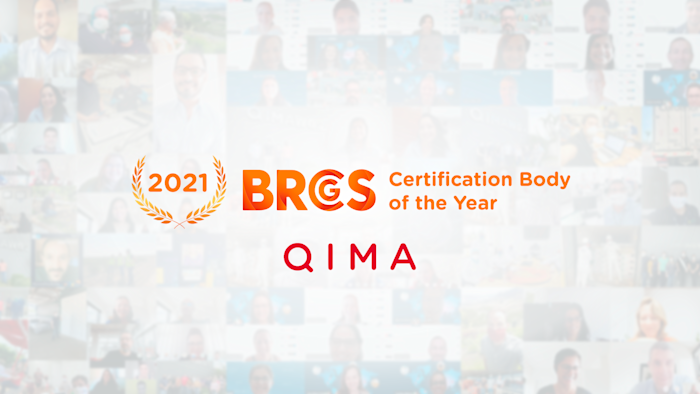
The Importance of Supplier Audits for the Food Sector
When the Global Food Safety Initiative (GFSI) was formed in 2000 to provide continuous improvement and benchmark existing food safety certification standards, many thought that supplier audits, known as second-party audits, would end. After all, it would be easier to demand a GFSI-recognized certification and thus simplify supplier qualification processes.
However, 21 years later, supplier audits continue to be an extremely relevant and important issue. If you are in the food sector, whether an engineer, nutritionist, agronomist, veterinarian, biologist or any other professional working in the field, you have certainly experienced a second-party audit, either as a requester or as a recipient.
Market Perspective
The understanding of market dynamics soon followed: although large companies continue to negotiate and/or request their suppliers to present a GFSI-recognized third-party certification, such as BRCGS or IFS (the most widespread in Brazil), many smaller suppliers are still unable to meet this requirement due to limited resources (human, infrastructure, and/or financial).
As a result, options were developed for these industries so that they could also demonstrate adherence to good manufacturing practices and food safety.
What are supplier or second-party audits?
While third-party audits consist of certification audits to an international standard, recognized (or not) by GFSI, second-party audits, often called supplier audits, are external audits conducted on the company's suppliers. Their aim is to assess important criteria for the organization that is contracting products or services. Typically, the contracting organization holds a GFSI-recognized third-party certification and establishes second-party audits as a form of evaluation within its supplier qualification criteria.
Beyond meeting current certification requirements, supplier audits ensure not only product standardization but also the most fundamental aspect when it comes to food: the health and safety of what is offered to the end consumer and the supply chain.
Benefits of Supplier Audits
Obtaining an X-ray of your supplier chain through independent audits, generating statistical data that allows you to measure and, more importantly, mitigate risks, is fundamentally important in a globalized economy, where a product can include components from numerous countries.
Second-party audits conducted by an independent company with technically qualified professionals create improvement conditions across the chain, with many aspects:
Real Diagnosis: Audits generate real information about a particular supplier, like a snapshot of the time concerning their production, internal controls, and the safety of what they are producing.
Risk Mitigation: With a supplier chain diagnosis, clients can create mechanisms and controls to reduce food safety risks in their suppliers, making the products/supplies provided safer.
Fulfillment of Requirements: GFSI certifications (BRCGS, IFS, SQF, among others) demand that certified industries have tools to ensure their suppliers meet requirements. In this case, an implemented audit program is the main alternative - it's the most economical and effective.
Strengthening Relationships with Key Suppliers: By playing a role in promoting improvements in your chain and offering your partners/suppliers improvement tools, a cooperative environment and strategy alignment are created, encouraging the supplier to meet necessary standards.
A Success Story!
This understanding enabled, for example, the APAS supplier development project, using the Supplier Assurance Audits checklist to present an scalable model of continuous improvement to the suppliers of the country's largest retail networks.
The program comprises two checklist models – one basic and the other intermediate – and as the supplier conducts its audits and improves processes, it approaches certifications recognized by the GFSI. On average, a small industry takes about four years to be able to certify in an international standard.
Today, 100% of private label suppliers of retail networks conduct at least annual audits according to this standard and have certification commitments with their clients.
Benefits for the Suppliers
For suppliers receiving the audits, the benefits are enormous:
Cost reduction for non-conforming products;
Reduction of recall or retrieval risks and compliance with legal requirements;
Improvement in food safety, customer satisfaction, and trust;
Reduced returns, lower costs in sales strategy, and opening up new markets.
This is because there is an APAS database containing all audited companies. Retail chains use this database to seek new suppliers and develop new products and technologies.
Subsequently, once certified, being in a worldwide database of eligible industries is a business showcase. Market players daily seek suppliers with these characteristics.
What is the future outlook?
Brazil is a major player in the global food production economy. According to data from ABIA (Brazilian Food Industry Association), the Brazilian food and beverage industry is the largest in the country, accounting for 10.6% of Brazilian GDP and generating 1.68 million formal jobs. Brazil is the world's second-largest exporter of processed foods, supplying food to 190 countries.
However, a deeper look reveals that of the 36.1 thousand food industries in the country (ABIA yearbook 2019/2020), only around 754 industries have a GFSI-recognized third-party certification, equivalent to a meager 2.08%. This indicates a long road ahead for industries (particularly small and medium-sized) to develop a contextualized Food Safety standard. We are still beginning to build models that provide the market players the security they need.
Thus, second-party audits and development programs – are the paths companies are taking to stabilize in an increasingly competitive market. This first step needs to be taken.
The pursuit of industries, when directed towards global food safety certifications, will open previously unexplored markets and lead them to a new level, gaining access to external markets, major clients, and international visibility.
By mid-decade, having an implemented and preferably certified Food Safety Management System will be crucial for the food chain. If your industry has not started preparing, seek an organization that can support you throughout the process, providing training, second-party audits, and third-party audits.
QIMA is approved by GFSI-recognized protocols, governmental entities, and major food retailers. Our food safety professionals innovate and simplify our processes to offer clients unprecedented transparency, market agility, and control over their entire food supply chain.
Related Articles


